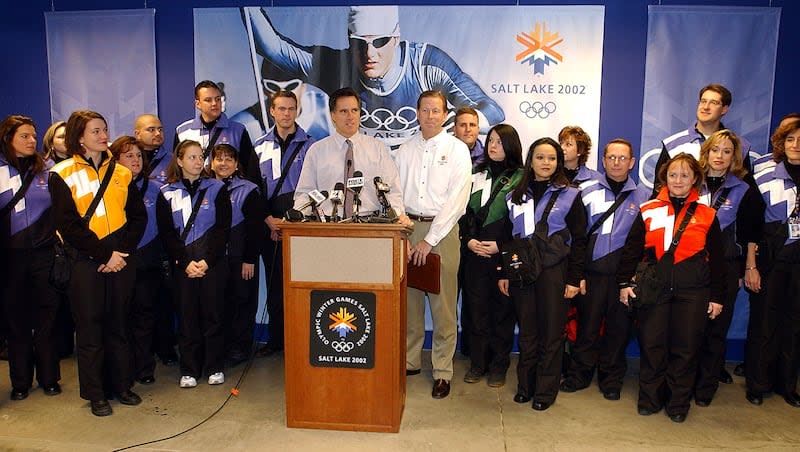Opinion: Utah’s key to unlocking the world

Few Americans will ever be named ambassador to a foreign country. Even fewer will be tasked with leading negotiations to escape the threat of war, negotiate multilateral trade agreements or establish coalitions to eliminate landmines. Regardless of background, knowledge, experience and upbringing, every American, every Utahn, has an opportunity to represent our state and country in meaningful ways across the globe as a citizen diplomat.
For the first time in Utah history, the state Legislature recognized Utah Citizen Diplomacy Day. In fact, Utah is the first state in the nation to recognize such a day, highlighting the power of citizen diplomacy as a way to strengthen relations between Utah and countries across the globe. Citizen diplomacy is much larger than a day of recognition; it’s a lifelong practice where we seek mutual understanding and build bridges with individuals throughout the world.
It has the power to shape perceptions of Utah in countries and among people across the globe, effectively shattering stereotypes, illuminating commonalities, underscoring common human aspirations and developing the web of human connections needed to achieve more peaceful relations.
In 1956, President Dwight D. Eisenhower convened the White House Conference on Citizen Diplomacy. In his remarks, he stated: “There is no more important work than that in which we are asking you to participate. There is no problem before the American people — indeed, before the world — that so colors everything we do, so colors our thinking, our actions as does the problem of preserving the peace and providing for our own security.”
The need to promote and cultivate peace is as important today as it was in 1956. Time and time again, we have seen how citizen diplomacy has cultivated peace, generated economic opportunity, increased cultural understanding and increased prosperity. Utah has benefited from the power of citizen diplomacy, as have the individuals and countries that we have been able to interact with.
In 2002, Utah welcomed the world to our state. An army of citizen volunteers set the stage for one of the most successful, if not the most successful, Olympic Winter Games in history. These volunteers served as citizen diplomats and showcased the generosity, kindness and grit unique to Utah. Each interaction changed perceptions, cultivated lasting relationships and opened international doors for Utah that would be closed otherwise. We have a unique opportunity to once again demonstrate Utah’s citizen diplomacy prowess as we prepare to welcome the world again as the preferred host of the 2034 Olympics.
In addition to hosting the world in our great state, Utahns can also be effective citizen diplomats as tourists in foreign lands, as musicians performing through a global tour, through study abroad and teacher exchange programs, trade missions and much more. All of these encounters produce moments of diplomacy — an exchange of experiences, talents and knowledge through individual contact.
And while Utahns can be effective citizen diplomats in far-off lands, they can also practice the same principles here at home. In an increasingly contentious political environment, citizen diplomacy can pave the way for common ground and mutual respect. While we should passionately disagree on issues of importance, we should also seek for understanding, compassion and reason. Indeed, these attributes should prevail in our interactions with anyone, be it a neighbor down the street or a family in Mongolia.
Each Utahn has the right, even the responsibility, to serve as a citizen diplomat. By bringing people together to shake hands, sit down, and share our life stories, knowledge and values with each other, we can make the world a better place for everyone. It’s that simple.
Felecia Maxfield-Barrett is CEO of Utah Global Diplomacy

